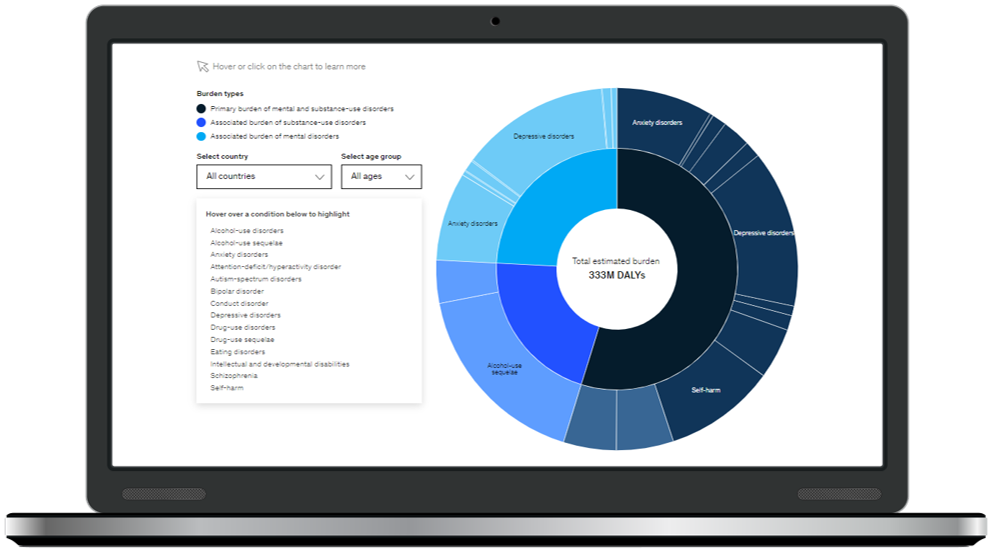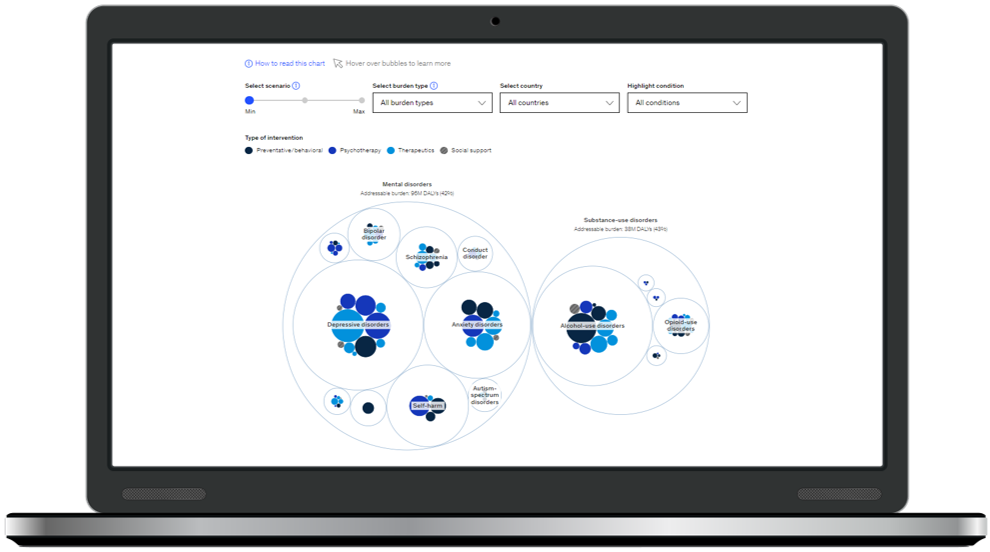
|
||||
|
|
||||
|
Did you know brain health conditions, including mental and substance-use disorders, account for at least 10% of global disease burden? That’s equal to all cancers combined. A new series of McKinsey Health Institute (MHI) interactives show that about half the burden — 150 million lost years globally — of brain health challenges is addressable, if leaders across industries and governments invest more in prevention and scaling interventions that exist today. |
||||
|
|
||||
|
||||
|
|
||||
|
||||
|
|
||||
|
This research goes hand-in-hand with what we’ve learned to date
about the role employers can play in advancing the mental health and well-being of their workforces. At a time when up to one in four employees are experiencing
symptoms of burnout, our research shows employers have the opportunity to increase the overall well-being of their staff and, consequently, the community at large.
Addressing burnout, reducing toxic workplace behavior, and increasing inclusivity and belonging on a global scale requires a collaborative effort. Our flagship Employee Mental Health and Well-Being initiative offers a variety of free tools and resources to help employers understand and invest in the right interventions to prioritize employee mental health and well-being. |
||||
|
|
||||
|
||||
|
|
||||
|
We can address this, and look forward to your partnership as we work to reduce the global burden of brain health challenges worldwide. Please get in touch with us through our contact form or by responding to this email, and keep up to date on the latest from MHI by subscribing to our newsletter and following us on LinkedIn. — The MHI Brain Health team (Martin Dewhurst, Erica Coe, Kana Enomoto, Barbara Jeffery, Jacqui Brassey, Brad Herbig, and Andrew Doy) |
||||
|
||||
|
Brain Health research and insights
|
||||
|
|
||||
|
Our latest research on burnout, Gen Z’s mental health, and more |
||||
|
|
||||
|
||||
|
||||
|
||||
|
||||
|
||||
|
|
||||
|
What our experts are reading
|
||||
|
|
||||
|
||||
|
||||
|
|
||||
|
Did you find this newsletter useful? Take our quick survey to let us know. |
||||
|
|
||||
|
If you enjoyed this newsletter, forward it to your colleagues and friends so they can subscribe too. Was this email forwarded to you? Sign up for the McKinsey Health Institute newsletter here.
|
||||
|
||||
|






